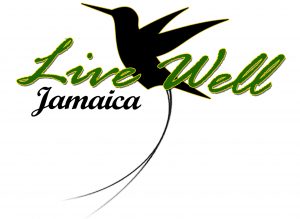Last
week major stakeholders in the Whitehouse and Bluefields Solid
Waste Reduction Project
met with residents in the communities to review the progress of the
project and discuss the way forward.
Launched on World
Ocean’s Day 2018 (June 8) through grant funding from the United
Nations Environment Programme (UNEP) and the Sandals Foundation, the
Whitehouse and Bluefields Solid
Waste Reduction Project
seeks to educate and provide residents along the South Coast with a
structure for better solid waste management through effective waste
separation.
The programme, which has been rolled out in
some 40 locations in Whitehouse and Bluefields primarily, has
provided over 200 bins for the separation of plastic bottles, compost
and regular solid waste. The collection of these materials is a
collaboration between the National Solid Waste Management Authority
(NSWMA), Robins River Green House Operators and Recycling Partners of
Jamaica.
“Public education within the community and local schools has resulted in successful separation of waste and the collection of over 600lbs of plastic bottles and 300lbs of compost and counting,” said Bianca Young, environmental officer at the Sandals Foundation.
“We are currently assessing the perspectives of the communities and hope to impress upon all stakeholders that their hard work is paying off,” Young said the project ultimately aims to use this strategy of waste separation and waste diversion to reduce and prevent pollution on both land and sea.

Immediate Benefits
Not only will this strategy help to prevent pollution but it may also assist in streamlining the collection for entities like the NSWMA thereby ultimately reducing waste going to the island’s landfills.
“This programme enhances the community and it will actually support the NSWMA’s messaging to residents on the importance of containerizing their waste,” said Mark Jones, public cleansing manager at the NSWMA. “Once residents containerize their waste it will be so much easier for us [NSWMA] to move this waste to the landfill.”
According to Jones over 30 percent of the waste collected by the NSWMA is plastic. He noted that with the plastic separation that the Sandals Foundation-spearheaded project promotes, his company’s trucks will be able to carry that much more volume than what they are carrying now resulting in a more effective process of garbage collection in these communities.
Beeston Spring resident, Astil Gage says the collection of plastics isn’t a first for his community however.
“There was a time when a recycling company used to collect our bottles and then it got shut down, and we were left with almost a room full of plastic bottles, we didn’t’ want to just dump them but we didn’t have anyone to collect them either,.” he said.
“Now with Sandals Foundation coming up with this Solid Waste Reduction Project we have been able to reduce that collection considerably.”
Plastic bottles from Beeston Spring and several other locations are collected and taken to a holding area on the Gilling’s Gully property next to the Sandals Foundation-operated Marine Sanctuary office in Whitehouse, from there the bottles are collected by the Recycling Partners of Jamaica.
Gage’s feedback is music to the ear of Christopher Corbin, programme manager with responsibility for pollution and communications within the United Nations Environment Programme [UNEP], who noted that there are many lessons to be taken from this programme for all the stakeholders involved. “Don’t make assumptions going into a community,” he said, “Provide them with the awareness, provide them with possible solutions but also give them the opportunity to grow.”
He noted that in terms of providing livelihood opportunities this project has been very different from many others that UNEP has been involved in. “We’re looking at composting, we’re looking at recycling and we’re looking ultimately at changing attitudes and behavior for a more sustainable Jamaica.”

Open House
Following a meeting of the Sandals Foundation, UNEP, National Solid Waste Management Authority (NSWMA), National Environment and Planning Agency (NEPA), Recycling Partners of Jamaica and community organizations, the participants travelled to the Community Center at Seaview Lawn in Whitehouse during which local residents were given an update on the programme and an opportunity to learn how they can become more involved. There were also displays highlighting the importance of composting and recycling and providing residents with insight on how they can practice this right at home.
“There
is a need for greater involvement and leadership within the community
because the protection of our environment is crucial to the
development of several industries in Jamaica, and the health and
well-being of all Jamaican people and this project provides a
framework for teamwork and success in waste management.” said
BiancaYoung.
As for the projects’ key donors; UNEP,
Corbin notes that his team is especially pleased to see how they can
further strengthen the partnership and collaboration with the Sandals
Foundation so that this project can really serve as a model,
something that can be upscaled and replicated.









